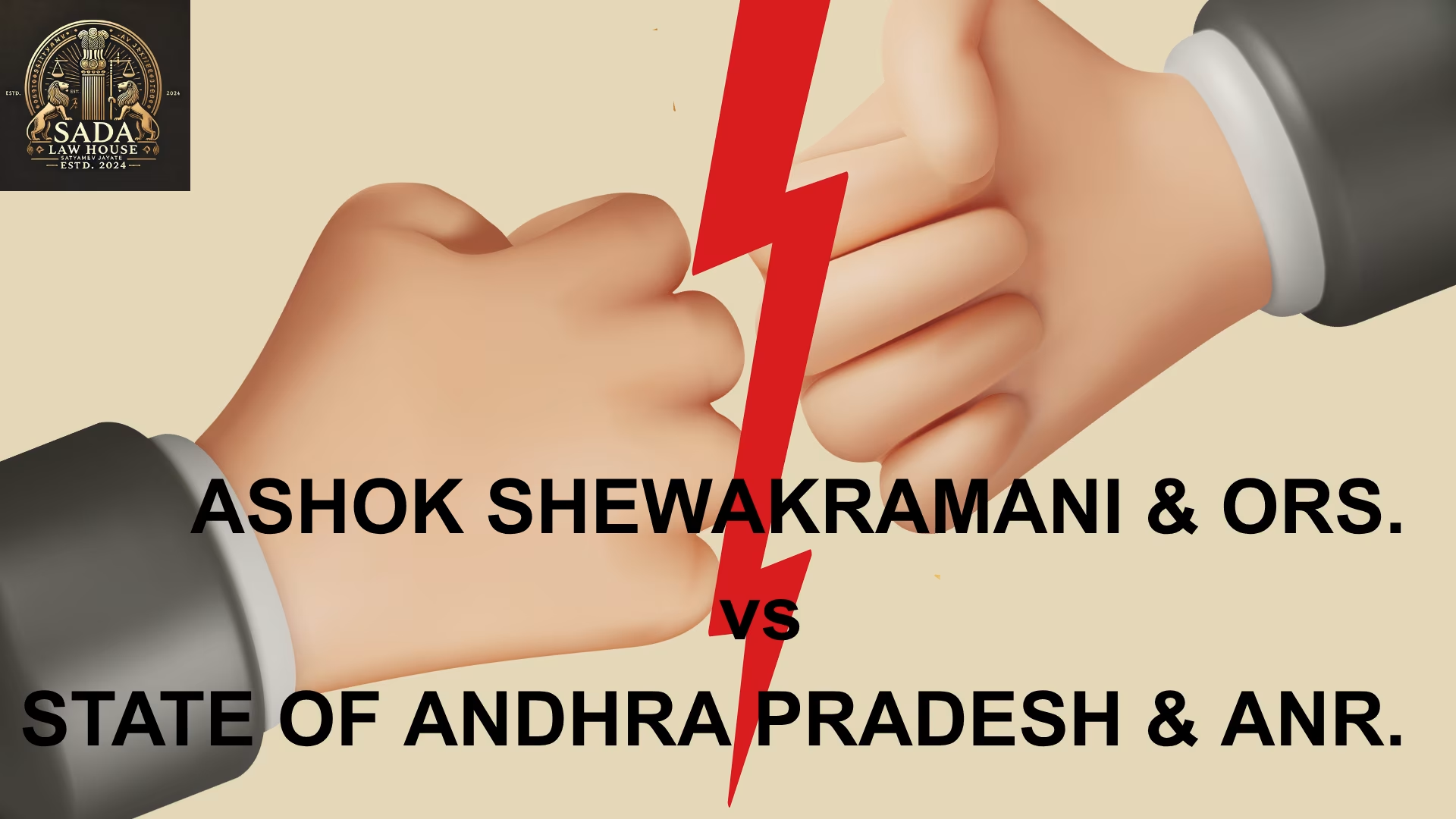Ashok Shewakramani & Others v. State of Andhra Pradesh & Another (03 August 2023)
- Reha Bhargav
- 14 October, 2025

Introduction:
The case of Ashok Shewakramani & Others v. State of Andhra Pradesh & Another, decided by the Supreme Court on August 3, 2023, concerns a petition filed under Section 482 of the Code of Criminal Procedure (CrPC) seeking to quash criminal proceedings. The appellants were accused of cheating, criminal breach of trust, and forgery under Sections 406, 420, 468, 471, and 120B of the Indian Penal Code (IPC). The dispute stemmed from a commercial transaction involving shareholding and company management.
The case primarily dealt with the intersection of civil and criminal law, questioning whether criminal prosecution was being misused to settle what was essentially a civil or contractual disagreement.
Background:
The complainant (second respondent) and the appellants had entered into a business arrangement involving investment and transfer of company shares. The complainant alleged that the appellants, acting as company directors or shareholders, deceived and defrauded him by misrepresenting shareholding status and forging company records to exclude him from ownership and control.
As a result, an FIR was registered under Sections 406 (criminal breach of trust), 420 (cheating), 468 (forgery), 471 (use of forged document), and 120B (criminal conspiracy) of the IPC.
The appellants approached the Andhra Pradesh High Court under Section 482 CrPC, arguing that the matter was purely civil in nature and did not warrant criminal prosecution. However, the High Court dismissed their plea, prompting the appeal before the Supreme Court of India.
Key Developments:
The appellants maintained that no criminal intent was present and that the dispute was commercial.
The complainant and State argued that there was prima facie evidence of fraud and conspiracy.
The Supreme Court carefully reviewed the FIR, charge sheet, and company documents to assess whether a criminal offence was disclosed.
The Court found that the essential ingredients of offences under IPC sections 406, 420, 468, 471, and 120B were not made out.
The criminal proceedings were therefore quashed under Section 482 CrPC.
Issues:
Whether the criminal proceedings initiated under Sections 406, 420, 468, 471, and 120B IPC—arising from a commercial and contractual dispute—should be quashed under Section 482 CrPC on the ground that the allegations primarily disclose a civil wrong and not a criminal offence.
Current Status (Judgment):
The Supreme Court, presided over by Justice Abhay S. Oka, allowed the appeal and quashed the criminal proceedings against the appellants.
Key observations included:
Not every breach of contract or commercial dispute constitutes a criminal offence.
The allegations were civil in nature, primarily related to company management and shareholding.
No dishonest or fraudulent intent was established at the inception of the transaction.
Continuing the prosecution would amount to abuse of judicial process.
The Court thus set aside the High Court’s order and quashed the FIR and chargesheet, exercising its inherent powers under Section 482 CrPC.
Conclusion:
The Supreme Court reaffirmed that criminal law should not be used as an instrument of coercion in civil or commercial disputes. The judgment draws a clear distinction between mere breach of contract and criminal wrongdoing involving mens rea (guilty intent).
By quashing the proceedings, the Court reinforced judicial safeguards against misuse of criminal prosecution in business conflicts and upheld the integrity of Section 482 CrPC as a means to prevent abuse of legal process.
This ruling strengthens the principle that commercial disagreements must be resolved through civil remedies, not criminal litigation, unless clear evidence of fraudulent intent is shown.
Case Laws






